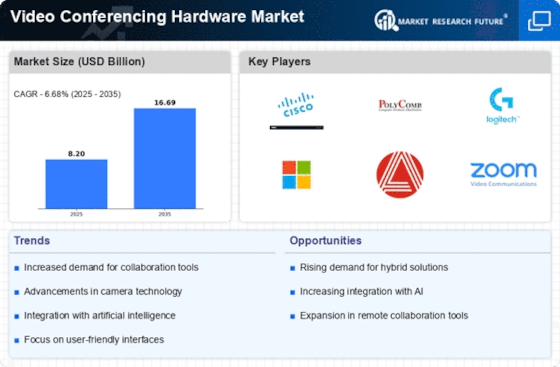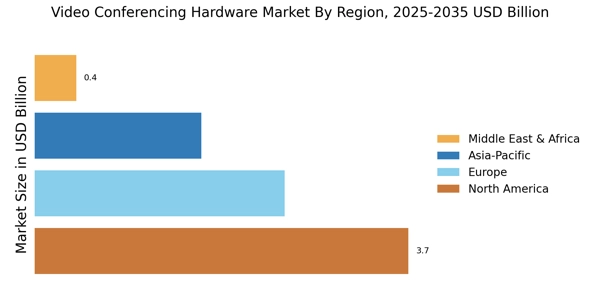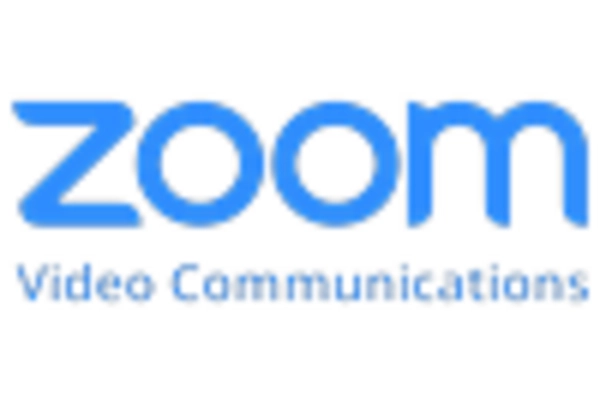Expansion of the Education Sector
The education sector's increasing reliance on video conferencing technology is a notable driver for the Video Conferencing Hardware Market. Educational institutions are adopting video conferencing solutions to facilitate remote learning, virtual classrooms, and collaborative projects among students and educators. This trend is supported by data indicating that the education technology market is expected to grow substantially, with video conferencing hardware being a key component. As schools and universities invest in advanced video conferencing systems to enhance the learning experience, the demand for specialized hardware tailored to educational needs is likely to rise, contributing to overall market expansion.
Rising Demand for Remote Collaboration
The increasing trend towards remote work and collaboration is a primary driver for the Video Conferencing Hardware Market. Organizations are investing in high-quality video conferencing solutions to facilitate seamless communication among distributed teams. According to recent data, the market for video conferencing hardware is projected to grow at a compound annual growth rate of approximately 10% over the next five years. This growth is fueled by the need for effective collaboration tools that enhance productivity and engagement. As businesses recognize the importance of maintaining strong connections with remote employees, the demand for advanced video conferencing hardware continues to rise, indicating a robust market trajectory.
Increased Focus on Security and Privacy
As organizations become more aware of cybersecurity threats, the emphasis on secure video conferencing solutions is intensifying within the Video Conferencing Hardware Market. Companies are prioritizing hardware that offers robust encryption and secure access controls to protect sensitive information during virtual meetings. This heightened focus on security is reflected in the growing market for secure video conferencing solutions, which is expected to expand significantly in the coming years. The demand for hardware that complies with stringent data protection regulations is likely to drive innovation and investment in secure video conferencing technologies, further propelling market growth.
Growing Adoption of Cloud-Based Solutions
The shift towards cloud-based video conferencing solutions is significantly influencing the Video Conferencing Hardware Market. Organizations are increasingly opting for cloud services that offer flexibility, scalability, and cost-effectiveness. This transition allows businesses to integrate video conferencing hardware with cloud platforms, enabling seamless access to communication tools from various devices. Market data suggests that the cloud video conferencing segment is expected to witness substantial growth, driven by the demand for remote accessibility and collaboration. As more companies embrace cloud technology, the synergy between hardware and cloud solutions is likely to enhance the overall market landscape.
Technological Advancements in Video Conferencing
Technological innovations play a crucial role in shaping the Video Conferencing Hardware Market. The integration of artificial intelligence, machine learning, and high-definition video capabilities has transformed the user experience, making video conferencing more efficient and accessible. For instance, features such as automatic framing, background noise cancellation, and real-time translation are becoming standard in modern video conferencing systems. These advancements not only improve the quality of virtual meetings but also expand the potential user base. As organizations seek to leverage these technologies to enhance communication, the market is likely to witness sustained growth, driven by the demand for cutting-edge hardware solutions.

















Leave a Comment